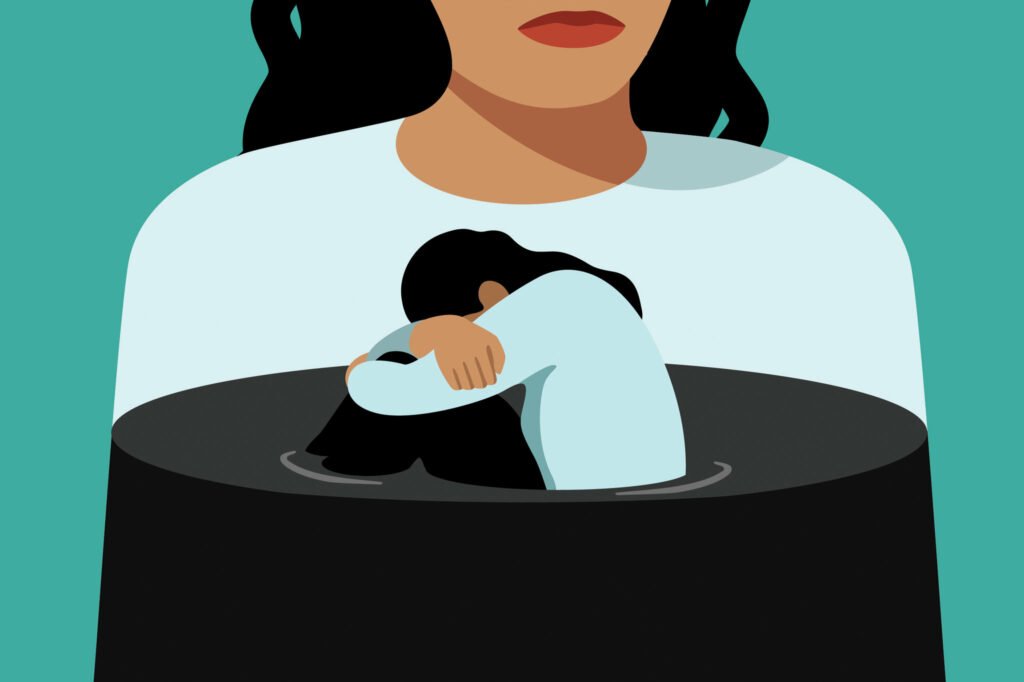If you’re reading this article, then there is a good chance that you are the parent of troubled teens. As parents, we often struggle to deal with rebellious behavior and uninterested teens. It’s hard for any parent to see their child suffer from depression or other mental health issues. In this article, I want to talk about how we can help our teens get back on track and start caring again!
Contents
Who are Troubled Teens?
Teens can go through a lot of changes during their teen years. As parents, we must remember that they are still growing and learning about themselves. They will discover new things and learn to deal with life’s challenges on their own. We as parents need to guide our teens in this process instead of taking over for them.
The most important thing you need to remember is that they are still children. They may act like adults but their bodies and minds are still developing. Teenage brains cannot fully handle the same kind of responsibilities as an adult’s brain scan. There are times when we think that we should be more independent and do things by ourselves. This isn’t always a good idea, especially if we’re not ready yet! If you think your teen is depressed or unmotivated and doesn’t seem happy, they might need to see a therapist or counselor.
Why do they trouble their parents?

A lot of parents wonder what is wrong with their child that they can’t just act normal. Why do teens put so much pressure on themselves? Well, the answer to this question usually lies in how our society treats teenagers today. We are always trying to get them into college or university which puts a lot of stress on them! As a full-time student, it can be hard to find time for yourself. You might feel overwhelmed with all the extracurricular activities you are doing.
The problem is that teenagers are expected to handle all of these responsibilities while still being normal teenagers. We expect them to have fun and be happy, but we forget they need time for themselves as well! They want to go out with friends or just relax on their own without having an adult breathing down their throat.
Typical Teen Behavior vs. Troubled Teen Behavior
Typical Teen Behavior
Some behaviors are common in teenagers, but that doesn’t mean that they are all the same. All teens go through a stage where they want to be independent and figure out who they are. During this time, they may do things that seem like they’re trying to push their parents away. This can include refusing to obey rules, pressuring you to let them do things you’re not ready for, and talking back or arguing with you more than usual.
It’s important to remember that this stage of independence is very different from the behavior of a troubled child. While all teens may go through some of these changes, a teen who is involved in criminal activities may exhibit additional warning signs.
Symptoms:
- Experimentation with alcohol or drugs
- Frequently skipping school
- Uncontrolled anger, impulsivity, agitation or moodiness
- Reckless behavior, such as driving recklessly or taking risks that could lead to injury
- Withdrawal from friends and family
- Changes in eating or sleeping habits
- Sudden decline in school performance
- Violence or threats of violence
- Self-harm, such as cutting oneself
- Suicidal thoughts or actions
Troubled Teen Behavior

A teen who is experimenting with alcohol or drugs may be at risk of becoming troubled. If they are drinking, using drugs, or engaging in other dangerous activities, you must take steps to get them help. A substance abuse counselor can work with your teen and provide a recovery plan.
Troubled teens often have social problems as well. If your teen is skipping school and hanging out with other teens who are getting into trouble, this could be a sign of trouble as well. Troubled teens often engage in risky behavior such as reckless driving or taking other unnecessary risks that can lead to injury or death.
Symptoms:
- Unexplained or unexpected changes in emotions, feelings, or behavior
- Secretive actions, including lying about what they do with their time
- Drugs, alcohol, and other activities that are risky or harmful to themselves or others
- The dramatic drop in school performance
- Involvement with gangs, weapons, or violence
- Excessive fear, anxiety, or depression
- Mood swings or changes in personality
- A lack of interest in activities that once pleased them, such as hobbies, sports, clubs, church groups, family outings.
Professional Tips For A Troubled Teen
For a teen who is not involved in criminal activity, but exhibits symptoms of troubling behavior, you should take steps to try and find the source. For example, your son or daughter may be going through something tough at school that seems overwhelming. Or they could have gotten into trouble with their friends and don’t know how to handle it yet. It’s important to talk with them and find out what’s going on.
Here are a few tips that you may follow:
Connect with your troubled teen
It’s important to build a strong connection with your teen. They may not want to talk about what they are going through, but it can help them feel supported by you! Try to find time each day to talk, even if it’s just for a few minutes.
Create a safe environment
Teens need a space where they feel safe to share their feelings and thoughts. Make sure your home is a place where they know they can come to you with anything. Avoid yelling or getting angry, as this will only drive your teen further away. If you feel like they are pushing you away, take some time for yourself to calm down before talking with them again.
Help them find solutions
If your troubled teen is struggling in school or getting into trouble at home, it’s important that you help him or her come up with ways to solve the problem! For example, if they are having trouble in school tell them that you’re going to help them find a tutor or connect with the teachers. If your teen is getting into fights at home, try and set up some rules for how they should handle their anger.
Maintain an open dialogue about drugs
When it comes to drug abuse among teens, it’s important to keep an open dialogue about it. Talk with your teen and find out what they know, who their friends are that use drugs or alcohol, and if the people around them will do something if they report drug abuse.
Let your teen have some space
Sometimes all kids need is some space from their parents for them to get back on track again. Letting the troubled kid know that you will always be there for them, but also giving them some space can help rebuild the relationship.
Red Flags For Troubled Teen Behavior
If you are seeing any of the following red flags, it may be time to seek professional help for your teen:
- The child has started hanging out with a new crowd and is engaging in risky behavior
- He is withdrawing from friends and activities that were once important to them
- The child is exhibiting changes in mood or personality
- There have been unexplained drops in school performance
- The child has started using drugs, alcohol, or other risky behaviors.
If you are seeing any of these red flags, it is important to seek professional help right away! There are many resources available to help troubled teens and their families get the support they need.
Therapy Options For Troubled Teens
Many different types of therapy can be beneficial for troubled teens. Some common therapies include:
- Cognitive Behavioral Therapy (CBT): This type of therapy helps teens learn how to change their thoughts and behaviors to improve their moods and overall outlook on life.
- Family Therapy: This type of therapy helps families learn how to better support their teens and work together as a team.
- Individual Therapy: This type of therapy provides teens with a safe space to talk about their thoughts and feelings without judgment.
- Group Therapy: This type of therapy allows troubled teens to connect with others who may be going through similar challenges.
If you are looking for help for your troubled teen, please seek out a professional therapist in your area. There are many resources available to help teens and their families get the support they need.
Counseling Options For Troubled Teens

If you are looking for help for your troubled teen, please seek out a professional therapist in your area. There are many resources available to help teens and their families get the support they need.
There is no one-size-fits-all approach when it comes to helping kids with mental health issues. The best thing to do is find out what works for you and your child. There are many types of therapy available, so you must work with a professional who can help tailor treatment plans specifically to fit your needs.
Troubled teens often display certain red flags which should be taken seriously. If you notice changes in mood or personality, a sudden drop in school performance, or if your teen is hanging out with a new group of people and engaging in risky behaviors, it’s important to seek professional help. There are many resources available to assist families who need support for their troubled teens.
Conclusion
If you’re a parent of a troubled teen, there are many resources available to help. If your son or daughter is struggling with drugs, there is a place called Narconon Fresh Start that can help them. There are programs for teens with drug and alcohol addiction. They can help with problems like self-harm and anger management. You don’t have to feel alone. There are people that care and want to help you and your family get through this tough time.
For more information, please contact MantraCare. Parenting is a challenging yet rewarding experience that is crucial for the development and well-being of a child. If you have any queries regarding Online Parenting Counseling experienced therapists at MantraCare can help: Book a trial therapy session






